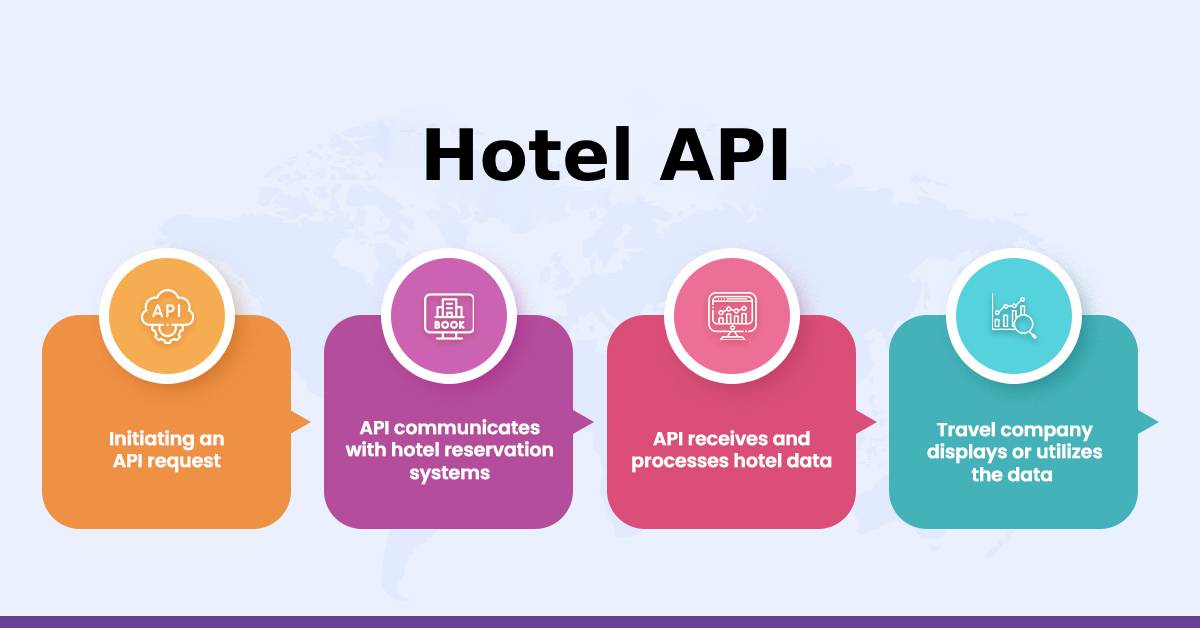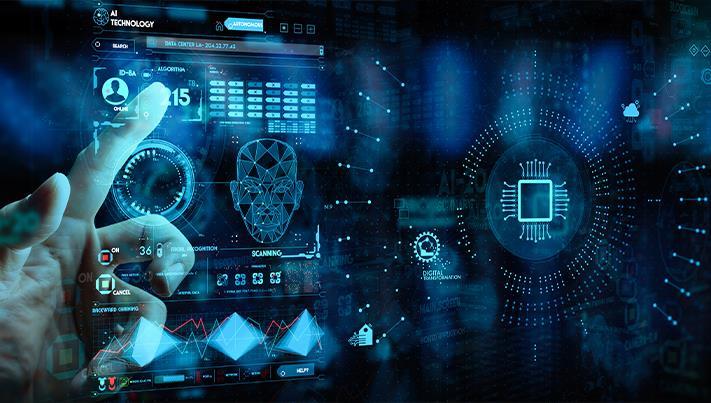
Integration of hotel APIs: their part in enhancing consumer experience
In the very competitive hotel industry of today, providing a flawless and customized guest experience is more important than ever. Hotel managers depend more and more on including hotel APIs in their processes as technology develops to simplify their operations for effective client service delivery. Faster, more effective procedures are promoted by API integration, allowing hotels to interact with outside systems, applications, and service providers in real time. Still, outside of improving internal processes, hotel API integration can significantly improve the whole client experience.
Using real-time updates, personalization, and simplicity, hotel API integration can improve guest experience, raise satisfaction, and build loyalty in this blog article.
What is hotel API integration?
Hotel API integration is the link between external services such as online travel agencies, booking platforms, payment gateways, and guest service providers and a hotel's internal management systems—such as property management systems, booking engines, and revenue management systems. This API interface allows different software programs to exchange data across the hotels, therefore ensuring that all processes—from booking to checking in and out—would be flawless and in real time.
Most tasks are automated by the hotels; human mistakes are avoided, and staff members will also have much simpler interactions with visitors.
1. Real-time booking and availability updates
The capacity of the integration of the hotel API to offer actual-time updates regarding booking and availability may be one of its main benefits. Through the website of a hotel, even through independent websites like Booking.com, and even through mobile apps, a visitor should be able to reserve his room at any hour of the day and night. An API-driven booking guarantees continuous and accurate updating of every channel's availability.
When a guest checks a room, for example, the availability status is instantly changed on all systems. It removes the possibility of double bookings, annoyance, and bad customer experience resulting from unsynchronized booking information. Knowing the material they come across is accurate, guests may book with assurance.
2. Easy Processing of Payments
Payment processing is another area Hotel API connects to improve customer experience. Here, the integrated payment gateway lets guests pay from the convenience of the hotel's website or another outside third-party system. Credit and debit cards, digital wallets, or even mobile-based approaches can all be linked with the most practical ways for transactions via these payment gateways.
Should a visitor check out, the system of the hotel automatically handles the payment and emails a confirmation receipt. This process's simplicity and security boost passenger confidence and help to ease booking and check-out friction.
Furthermore, facilitating the processing of several currencies and tax computations in real time are API interfaces. Dealing with foreign guests is especially important here. This flawless approach provides a hassle-free and quick payment mechanism, therefore enhancing the whole guest experience.
3. Customized Visitors' Experience
In hotels, client satisfaction is mostly determined by personalization. Integration of hotel APIs helps hotels gather, save, and examine guest preferences, past bookings, and other personally relevant information. Using APIs, hotels have been able to link guest management systems with CRM platforms, therefore offering very customized services.
For example, all this information can be automatically kept and utilized to customize a guest's future visit if they had booked a room with a king-size bed and also indicated a desire for a particular room temperature. Specific offers, upgraded lodging offerings, and experience-related services will make a client value you more and establish an affiliation with you.
Hotels will be able to send pre-arrival emails with deals, chances to upgrade, or recommendations for local events matching guest preferences or travel experiences by means of API connectivity. This will significantly affect the guest experience since it will provide it with more of a customized feel and sense of uniqueness.
4. Improved Channels of Communication
Good guest experience depends on effective communication. Easy guest pre-, during-, and post-stay communication is made possible by hotel API integration. Many hotels now offer in-room tablets or mobile apps allowing visitors to request, ask inquiries, or even schedule activities such as meal reservations, spa treatments, or even transportation.
The integration of message systems or chatbots via APIs allows guests to express their needs straightforwardly. Whether they need towels, room service, or a late check-out, guests no longer have to spend long hours on the phone waiting.
Apart from guest stays, hotels can utilize APIs to issue review invitations or request comments. This not only lets customers know their opinions are appreciated but also gives hotel managers vital information to enhance the next events.
5. Faster Check-in and Check-out
One of the usual annoyances for hotel visitors is long check-in and checkout procedures. Integrating your API with a hotel service helps you streamline those procedures and cut queuing times. Mobile check-in and check-out enable visitors to finish these procedures using an app sometime before arrival. Should they arrive at a hotel, they can enter the room straightforwardly without consulting the front staff.
One of the amenities valued by modern guests is this saves the guest time. It also connects with keyless entry systems via APIs so that guests may access their room doors with their smartphones, therefore simplifying the check-in procedure even more.
6. Integration with Services in Neighbourhood
The guest experience goes beyond what the hotel offers. APIs can also connect hotels to surrounding companies such as restaurants, travel sites, or transportation. Working with surrounding service providers allows hotels to let visitors make recommendations or book services straight through their website or mobile app.
Visitors might easily reserve a guided city tour, a highly sought-after restaurant, a taxi, or a private automobile utilizing an integrated API. Such a degree of service guarantees that visitors enjoy an unforgettable experience from start to finish and is practical.
7. Staff Improved Operational Efficiency
While the rest-facing side of hotel operations mostly determines API integration, it is also crucial for enhancing internal procedures. Integrated hotel management systems (housekeeping, maintenance, front desk) and automated administrative chores help staff members operate more effectively and hence deliver great customer service.
Through an integrated system, the front desk can, for instance, immediately notify housekeeping upon a guest requesting a certain service—such as room cleaning or more pillows. This would ensure that no demand is unsatisfied and that every department is in the queue, providing quicker and more flawless reaction times.
Conclusion
Hotel API integration is one quite successful way to increase operational efficiency and client delight. The guest experience is improved by real-time updates, perfect settlement of payments, customized services, and efficient correspondence. By means of automated processes, tailored recommendations, and local service integration, hotels may significantly enhance the visitor experience.
Hotel managers must change with new technology like API integration if guest expectations keep growing in order to be competitive in satisfying these demands. They not only simplify their processes but also establish surroundings that improve guest happiness and inspire long-term loyalty.
Nowadays, the importance of hotel API integration is clear: every modern hotel has to search for it as they keep trying to get near perfection in using always-evolving new technologies.
Read Also
Enhanced User Experience by Integration of Flight APIs

 Start your Travel Business with Our 7 Day Free Trial Website!
Start your Travel Business with Our 7 Day Free Trial Website!





